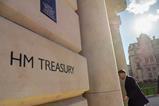The government has proposed allowing any individuals that exceed the annual allowance to pay the tax charge from their pension pot, rather than their salary.
In its latest consultation, HM Treasury suggest the minimum size for tax bills that individuals can elect to pay from their pension benefits be set between £2,000 and £6,000.
HM Treasury is consulting on whether pension schemes should pay members’ tax charges each year or roll them up for payment at retirement.
Individuals with smaller annual allowance charges would have to meet them out of current income.
Stephen Green, a senior consultant at Towers Watson, said: “Setting the threshold as low as £2,000 could mean pension schemes have to take responsibility for tax bills high-earners could usually manage themselves as well as the genuinely unmanageable ones.
“One reason why the government might be considering a low threshold is that the annual allowance will be reduced before Lord Hutton's changes to public sector pensions take effect.
“The government may be looking to minimise the number of public servants who have to meet tax charges out of current income during the final year or so in which they accrue final salary benefits.”
Steve Hitchiner, partner at Barnett Waddingham, added: “Industry bodies will all feel these proposals present an unwanted administrative burden.
“I believe it is necessary to allow pension schemes to meet tax charges in some circumstances, otherwise there is a very real prospect of individuals not being able to meet tax charges out of their income which would not be a desirable outcome.
“That said, the challenge for HM Treasury is designing a system that achives its objectives, causes the least possible administrative burden and is workable in practice.”
Read more articles on the annual allowance tax charges








